Bahamas News
House of Assembly Communication COVID-19 Orders by Prime Minister of The Bahamas
Published
4 years agoon
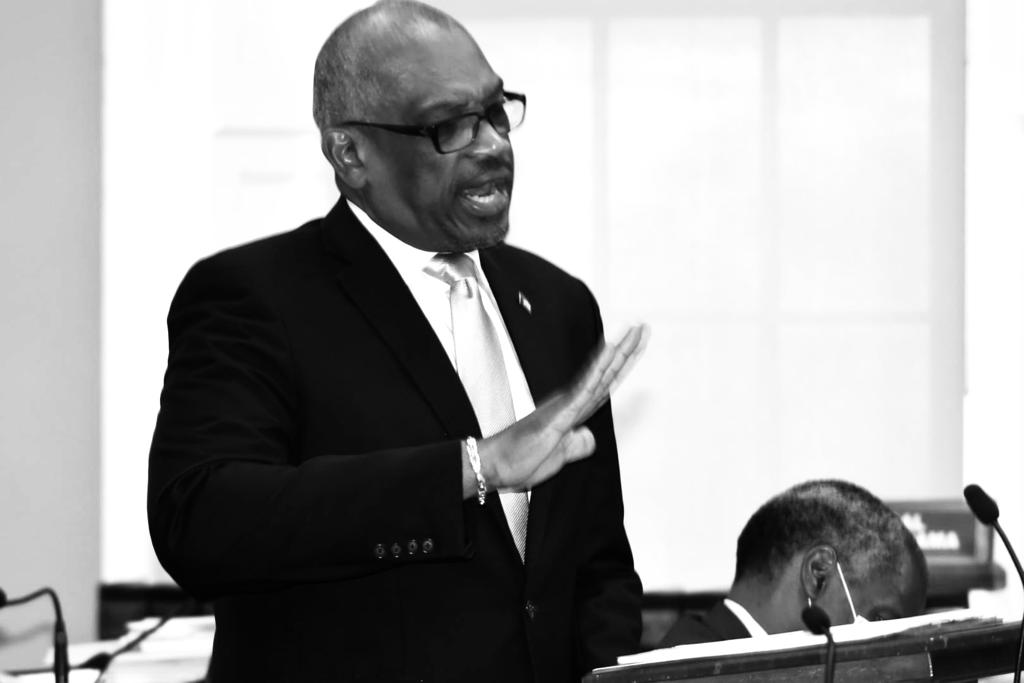
FULL SPEECH PRESENTED TODAY, APRIL 6 AT THE BAHAMAS HOUSE OF ASSEMBLY by Most Hon. Dr. Hubert A. Minnis
Mr. Speaker:
Yesterday on Palm Sunday, Christians around the world and here at home began the observance of Holy Week, commemorating the passion, death and resurrection of Jesus Christ.
This Lent and Easter, individuals, families, communities and societies are experiencing ‘the way of the cross’ in ways we have not experienced in most of our lifetimes.
We are losing loved ones.
Some are experiencing ill health, some are critically ill.
Families and friends are confronting the death of loved ones.
We are feeling the loss of those who have contributed so much to our country over so many years.
Mr. Speaker,
One of the most unfortunate consequences of the emergency orders, was the postponement of several funerals planned for this past weekend.
I know that this added to the grief of those who were unable to bury or to say a final earthly farewell to their loved ones.
I know this is painful, but I want to assure the families and the country that this difficult decision was taken to save and to protect lives.
I know from my own experience how painful this is. During Hurricane Dorian I lost my brother. We were unable to bring his body home from the United States for weeks and could not plan his funeral until many weeks after his death because of the turmoil after Hurricane Dorian.
I want to express our condolences to all of those who recently lost loved ones. We will consult with the Funeral Directors Association as to the best way forward in light of the difficult circumstances we are all confronting.
Mr. Speaker:
In our ongoing effort and urgent mission to save lives and to protect health, I wish to announce further emergency measures which health officials believe are absolutely
necessary. I again stress that similar measures are being taken in other countries and jurisdictions.
The effect of the ending of the total Lockdown period, as of 5:00 am this morning, is that the Nation has returned to the 24 Hour Curfew which was imposed by the COVID-19 Order (No. 2) of 2020.
I must advise this House and the Bahamian people that, due to the fact that there are asymptomatic carriers of the virus, and based upon medical advice, the Competent Authority may impose further, sometimes longer, lockdown periods over the coming weeks. This may require the extension of the Proclamation and associated documents.
Let me remind the House and the Bahamian People that the 24 hour curfew means that individuals should not leave their Homes at all, unless they are going out to buy an essential item, such as groceries, water, gasoline or prescription pharmaceutical products; or if they have been designated as an “essential worker” in a Government Ministry, Corporation of Agency, or in any essential Service or Public Utility (whether publicly or privately owned) or if
they are a designated essential worker in an “Exempted business, establishment or undertaking”.
Under the 24 hour curfew, a person may only physically exercise in his own yard, or on the roadways in his immediate neighbourhood.
Mr. Speaker,
I repeat, I must advise this House and the Bahamian People that, due to the fact that there are asymptomatic carries of the virus, and based upon medical advice, the Competent Authority may impose further, sometimes longer, lockdown periods over the coming weeks.
This may require the extension of the Proclamation and associated documents.
As of Wednesday, 8th April, 2020, starting at 9:00 pm, a complete Lockdown will again be implemented effective Wednesday, the 8th of April, at 9pm and will end at 5am on Tuesday, the 14th of April.
At the end of that Lockdown period, the 24 hour curfew will again resume.
A shutdown will occur each weekend beginning 9pm on Fridays and ending 5am on Mondays.
During this shutdown, all services are prohibited, with the exception as follows:
• all hospitals in The Bahamas, • the Royal Bahamas Defence Force, • the Royal Bahamas Police Force, • the media, • security services, • hotels with guests • emergency units of core publicly and privately owned public utilities, namely, electricity, water, telecommunications, • and a strictly limited number of exempted undertakings, such as domestic and international import/export trade.
The Lockdown means you may not leave the confines of your property, for any reason, unless there is an emergency or unless you are working in an entity which will be specifically named, or identified by the function being performed, in the Lockdown Order.
This means you may not leave your property to exercise, even if it is in your immediate neighborhood.
You must stay at home or in your own yard!
For COVID-19 emergency health and health-related questions, the public may call 511.
Please have your NIB number available if you have to call this line.
For general information about COVID-19 which is not connected to an emergency or immediate health-related matter, please call 411.
For all health emergencies and life-threatening conditions call 911.
The Royal Bahamas Police Force has set up a COVID-19 Command Centre that you may call for shutdown and curfewrelated inquiries. This number is 311.
Additional telephone lines have been added to increase the capacity to deal with the high volume of calls and inquiries.
Mr. Speaker:
As a personal defence measure, particularly against transmission by people who may not show any symptoms, members of the public are highly encouraged to wear nonmedical masks in public.
I want to stress however, that those who are not frontline medical personnel should refrain from purchasing or wearing health masks. These masks are reserved for our health workers on the frontline.
I would at this moment urge every retail store, or persons, who have any stocks or supplies, of any medically approved surgical or face masks for sale, to contact the Ministry of Health immediately, in order to sell the same to Public Health, as the sale of any medical masks to the general public will at some time be prohibited.
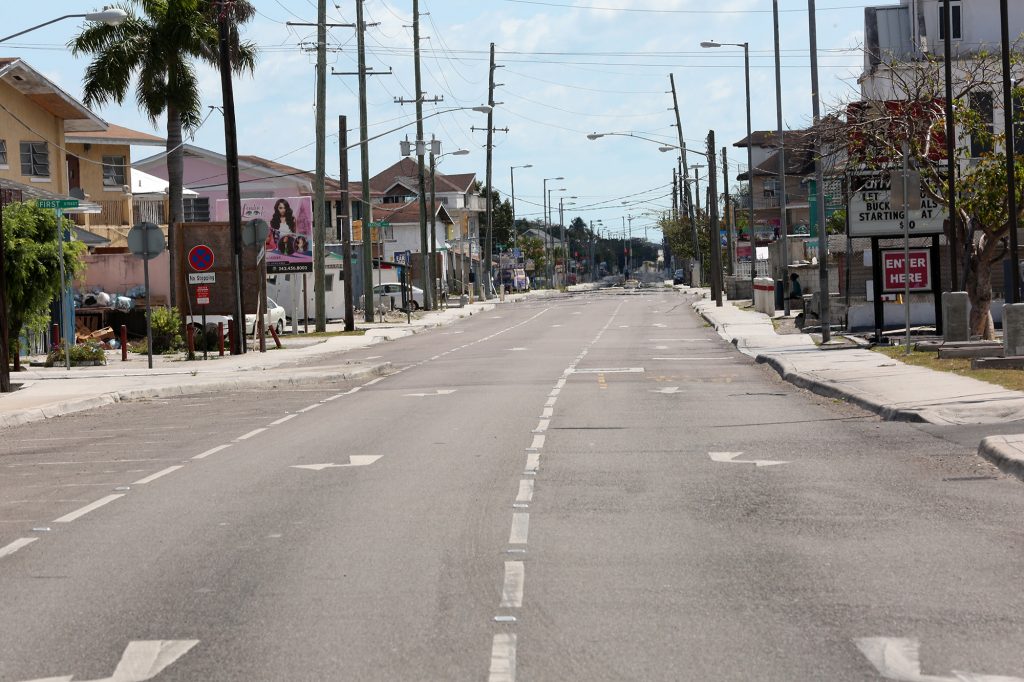
I urge the Ministry of Health and all hospitals to label their masks to identify those needed for frontline health workers.
This ensures adequate supplies of masks are available for health workers and avoid the shortage being experienced in some places abroad. This will also prevent a run on health masks.
To ensure the availability of masks for the general public, the Government has enabled the production of cotton masks in New Providence through various companies, including Bahama Handprints and Carey’s Fabric and Uniform.
These masks will be washable and re-usable by the ordinary resident.
To encourage and enable the large-scale production of cotton masks in the Family Islands, the Small Business Development Centre has been directed to provide funding to tailors and seamstresses so that sufficient masks are also available throughout the Family Islands.
Let me note that the production of masks presents an economic opportunity for businesspeople and entrepreneurs.
Going forward, The Bahamas will have to begin to manufacture a number of items for domestic needs.
This will provide economic opportunities and jobs for Bahamians.
I also note that in due course there will also be a tremendous opportunity for farmers to increase domestic food production.
I will have more to say over the coming days and weeks about how The Bahamas may significantly increase domestic production in a number of areas, which may also help to maintain our currency reserves.
Mr. Speaker:
Yesterday, my Office announced that starting today, Monday 6 April, until further notice, a food shopping schedule is in effect for the entire Bahamas.
This schedule was agreed after widespread consultation and discussion, including with the National Coordinating Committee. This schedule will regularly allow all residents access to food shopping three times per week.
But because of the wider shutdown this particular week, all residents will have the opportunity to shop at least once before the shutdown comes into effect. The shopping schedule allows for a specially designated time for senior citizens and persons with disabilities.
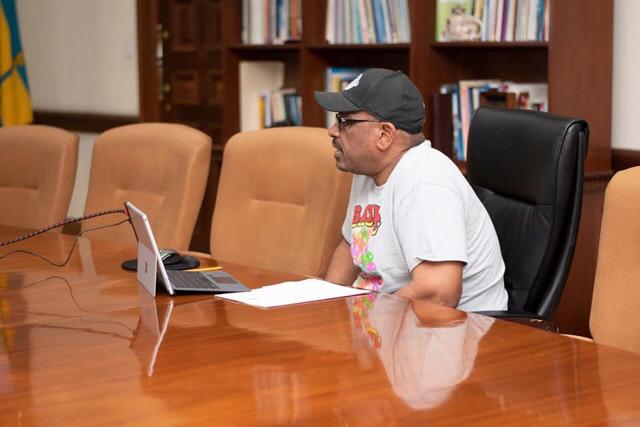
The schedule also ensures that each group has access to at least one afternoon slot to accommodate essential workers. There may be exceptions that were not accounted for but we will deal with those accordingly.
I will meet with Family Island Administrators via video conference at 3 p.m. this afternoon to discuss COVID – 19 preparations and response. During this meeting I will also discuss the specific needs of individual islands and cays related to the Food Shopping schedule and adjustments will be made to accommodate special required exceptions.
The schedule is designed to cut down on exposure, physical interactions and provide residents with enough opportunity to get the essential items that they need.
The schedule is as follows.
Adults with the last name beginning A through F will be allowed to enter food stores to shop on:
• Mondays: 6am to 12pm • Wednesdays: 6am to 12 pm • Thursdays: 1pm to 7pm
Adults with the last name beginning G through O will be allowed to enter food stores to shop on:
• Mondays: 1pm to 7pm • Wednesdays: 1pm to 7pm • Fridays: 6am to 12pm
Adults with the last name beginning P through Z will be allowed to enter food stores to shop on:
• Tuesdays: 1pm to 7pm • Fridays: 1pm to 7pm • Thursdays 6am to 12pm
Special provisions have been made for individuals 60 years of age and older and persons with disabilities.
Senior citizens and persons with disabilities may shop on Tuesdays from 6am to 12 pm; however, persons in these categories may also choose to shop on the day assigned to their last name.
In addition:
• Each household should identify a single shopper to carry out food shopping.
• Shoppers will be required to provide official photo identification to show proof of last name. • Physical distancing protocols, of 6 feet or more separation between each individual, must be adhered to at all times.
I wish to advise that large businesses should sanitize their premises before re-opening to large numbers of people; and at frequent intervals all surfaces usually touched by the general public, such as door handles, trolley handles, shelving, cash counters and glass door panels must be sanitized repeatedly throughout the day.
Strict physical distancing by limiting the number of persons allowed to enter to 1 person for every 30 square feet of publicly accessible store space must be adhered to.
Failure to comply with these requirements will lead to the store’s abrupt closure.
To review this schedule please go to Opm.gov.bs.
Mr. Speaker:
I wish to now advise the House that the Royal Bahamas Defence Force has been mobilized to fortify the borders of the Family Islands.
Incoming pleasure craft will not be allowed to dock at any port in The Bahamas.
An Amended Order will shortly be promulgated which will speak to further restrictions as it relates to protecting the borders of our Family Islands and their settlements and communities.
Notwithstanding the return to the 24 hour curfew, all residents of Bimini are advised to stay at home and indoors.
Mr. Speaker:
With the suspension of cruise ship activity around the world, The Bahamas is allowing a number of cruise ships, empty of passengers, to seek temporary shelter in The Bahamas, in its ports or elsewhere in its territorial waters.
The Ministry of Transport, in close coordination with the Bahamas Maritime Authority, has put in place protocols for cruise ships sheltering in The Bahamas.
These protocols outline the terms and conditions under which the ships are allowed to stay in The Bahamas.
For example, no shipboard personnel may disembark the ship at any time or for any purpose without the prior written permission by and only on specific terms set by the Competent Authority, which is the Prime Minister.
The protocols also outline security, medical and operational guidelines.
The Government may at any time supplement, amend or rescind all or any part of the protocols and issue any instructions or prohibitions with regard to a specific ship or circumstance as it sees fit.
Protocols for yachts and other pleasure craft are being developed.
The main purpose of which is to encourage as many of “these people” already within Bahamian territorial waters to return to their countries of origin for the duration of the pandemic.
Mr. Speaker:
This pandemic has killed more than seventy thousand people around the world.
It has killed young and old. Rich and poor.
No one is exempt, no one has been found to be immune from this deadly virus. Sadly, Bahamians have also died.
As Prime Minister and as a medical doctor, it is my duty to do what is necessary to protect our people. My mind is clear.
I am focused on what must be done.
The best medicine to stop this virus is physical distancing.
We must stay apart as much as possible to prevent the spread of this coronavirus and more deaths.
That is why I began the curfew and lockdown measures.
They are essential to save lives.
Sadly, what we noticed was that some people were not listening or taking this deadly virus seriously.
We therefore had to strengthen the measures because we are in a surge and there is community spread.
I wish to remind this House and the Bahamian People that the total lockdown we just experienced was done on the advice of public health officials in order to prevent and to slow the spread of the virus during the surge we are in.
Dr. Dahl-Regis, the coordinator of the COVID-19 response and a special adviser to the Prime Minister, publicly warned from March 26 that we were in the surge.
We have watched on the news the consequences around the world of waiting too long to act aggressively. Some countries and jurisdictions that did not act fast enough are experiencing hundreds of deaths per day.
We are learning from what happened in those places and applying the lessons to The Bahamas.
I assure the country that our best minds in public health are working hard behind the scenes to keep Bahamians and residents safe.
The Bahamas does not have the resources of larger countries.
We do not have their production capacity to create drugs and equipment to fight the virus.
In The Bahamas we must put our focus and our efforts on prevention. That is why we instituted the curfews, shutdowns and lockdown. But for this to work, all of us must do our part. We need our citizens and residents and visitors to comply and to follow the rules.
Compliance will help to determine how many deaths there are. We all have it in our hands to save lives.
If we follow the rules and listen, if we stay at home, fewer people will die and will get sick.
If we are slack, if we do not listen, if some sneak out and break the rules, more people may die.
The people who die from some being slack could be friends, neighbors and family.
This deadly outbreak is not just happening on TV.
It is not just happening around the world.
The virus is spreading in The Bahamas.
Not everyone who has it looks or acts sick.
There are infected people who have no symptoms.
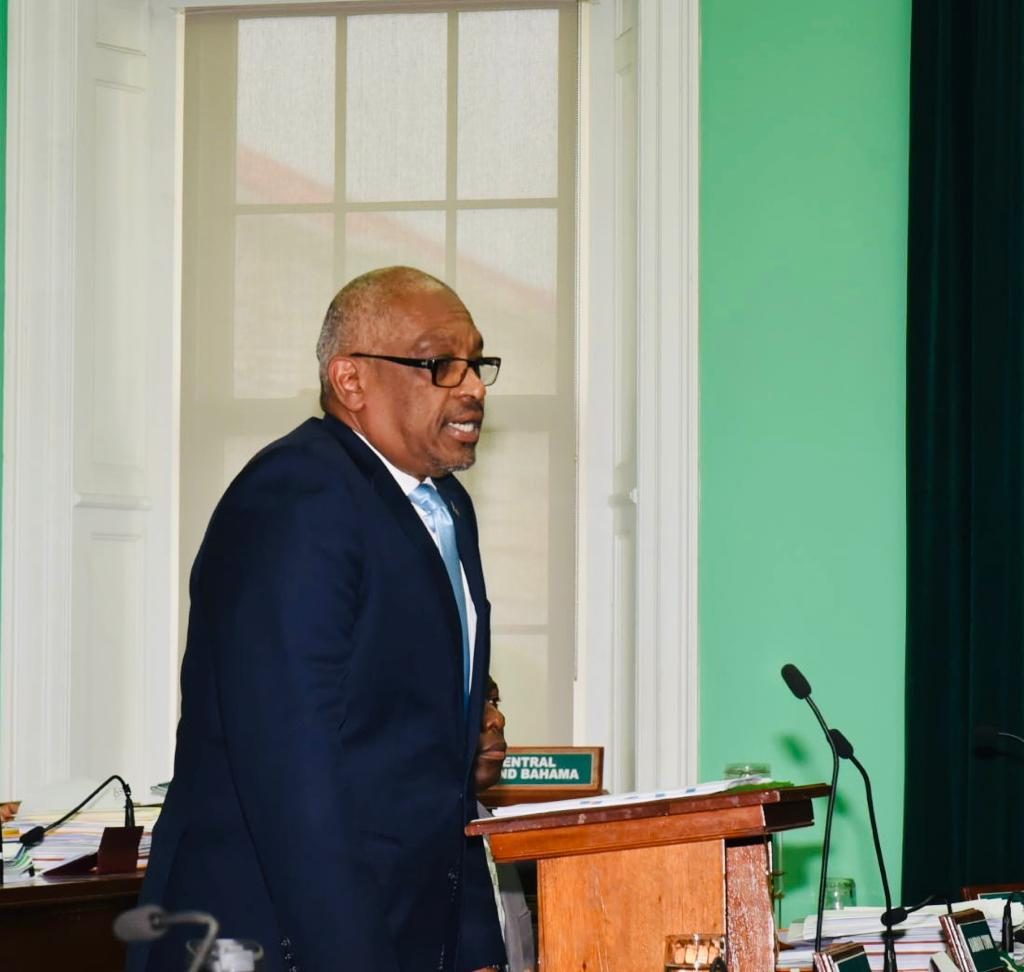
While someone is next to them not following the rules and having fun, they could give it to you and you could take it home and spread it to the people you love.
Let me be very clear about this.
There is no vaccine for the virus.
Some people who contract it get sick and die quickly.
What I have to do as Prime Minister now and in the days to come is for the protection of every citizen and resident in our country.
Mr. Speaker:
I wish to read a brief portion of good advice given by Dr. Johnathan Smith, an epidemiologist and lecturer in global health at the prestigious Yale School of Medicine on why the curfews and physical distancing are critical.
Dr. Smith said:
“In contrast to hand-washing and other personal measures, social distancing measures are not about individuals, they are about societies working in unison.
“These measures also take a long time to see the results.
“It is hard (even for me) to conceptualize how ‘one quick little get together’ can undermine the entire framework of a public health intervention, but it does.
“I promise you it does.
“I promise. I promise. I promise.
“You can’t cheat it.
“People are already itching to cheat on the social distancing precautions just a ‘little’- a playdate, a haircut, or picking up a needless item at the store, etc.
“From a transmission dynamics standpoint, this very quickly recreates a highly connected social network that undermines all of the work the community has done so far.
“Until we get a viable vaccine this unprecedented outbreak will not be overcome in a grand, sweeping gesture, rather only
by the collection of individual choices our community makes in the coming months.
“This virus is unforgiving to unwise choices.
“My goal in writing this is to prevent communities from getting ‘sucker-punched’ by what the epidemiological community knows will happen in the coming weeks.
“It will be easy to be drawn to the idea that what we are doing isn’t working and become paralyzed by fear, or to ‘cheat’ a little bit in the coming weeks.
“By knowing what to expect, and knowing the importance of maintaining these measures, my hope is to encourage continued community spirit, strategizing, and action to persevere in this time of uncertainty.”
Mr. Speaker:
Bill Gates of the Bill and Melinda Gates Foundation put it very succinctly:
“Until the case numbers start to go down…no one can continue business as usual or relax the shutdown.
“Any confusion about this point will only extend the economic pain, raise the odds that the virus will return, and cause more deaths.”
Mr. Speaker:
The economic blow to The Bahamas is massive and widespread.
It will be with us for some time.
The increase in unemployment will be tremendous and greater than most of us have seen in our lifetime.
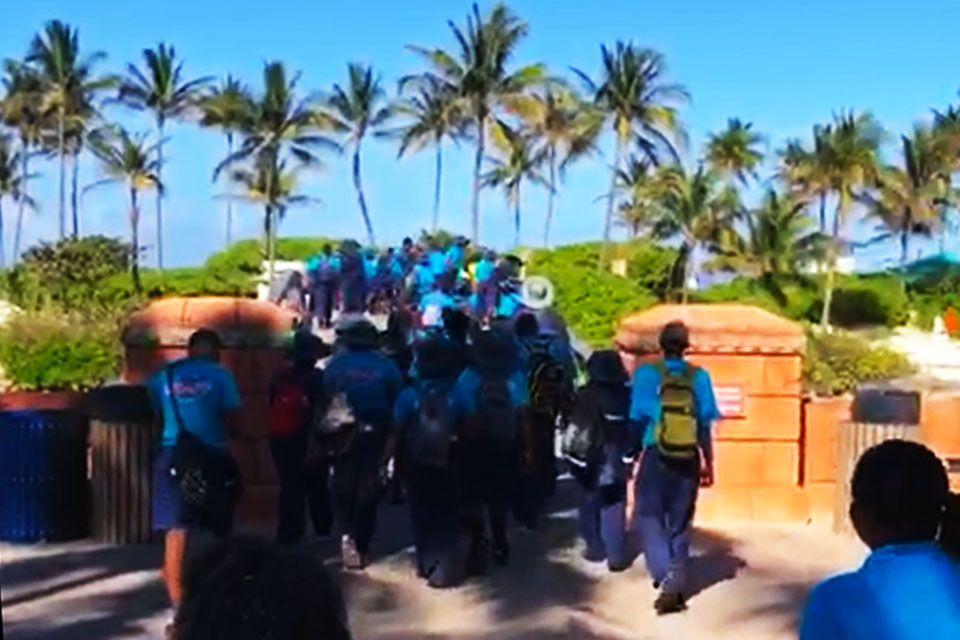
This means that My Government must and will take unprecedented action to help the poor, the vulnerable and those who are no longer employed.
We will have to help small-, medium- and larger business through a broad range of measures.
We will take bold and aggressive measures to keep our Bahamas afloat and to stimulate our economy.
We will take whatever means are necessary in terms of social assistance and our economic survival.
We have all seen pictures of the empty streets in even the busiest cities in the world like New York City, Tokyo, Paris, Rome and other great cities.
With the cessation of cruises, we see the large, empty cruise vessels docked right here in the Port of Nassau, one of the largest cruise destinations in the world.
We were among the first countries in the world to take the series of measures that were mandated under the Emergency Powers Orders.
We acted quicker and more decisively than many advanced countries.
We had a choice between acting quickly and waiting and wondering whether COVID-19 would come to our shores and when.
Thank God we acted when we did!
Mr. Speaker:
Our main concern and our top priority remains the health, the safety and the well-being of the citizens and residents of every island, cay, community and settlement in the Commonwealth of The Bahamas.
This is my gravest responsibility as Prime Minister and as a medical doctor.
Because we have taken a full hit on tourism and other sectors, My Government has already announced a series of social and economic programs to assist the most vulnerable among us in the short term.
We will announce further measures.
But where do we go from here?
Whenever I hear anyone speaking about unprecedented events, I am reminded of the words from the Great Book, the words from Ecclesiastes Chapter 1, verse 9.
“What has been will be again, what has been done will be done again; there is nothing new under the sun.”
While the current set of events are rare, they are by no means unprecedented.
We do have history and some lessons from that history that offer us guidance so that we do not repeat certain mistakes of the past.
We can go as far back as the Great Plague of London, lasting from 1665 to 1666, or as relatively recently as the 1918 Spanish Flu Pandemic.
Both of those deadly outbreaks taught humanity lessons about the need for physical distancing and need for the cessation of cross border travel.
Even more recently, we have seen the alarm and suffering caused by other major viruses.
While there are similarities and differences between other deadly viruses and COVID-19, they all disrupt economies and disrupt our lives to a greater or lesser degree.
But sooner or later they are followed by a period of recovery of our livelihoods and economy.
In every case, the length of that economic disruption is determined primarily by how long it takes to eliminate the threat to our lives.
Today, this is the great unknown.
We are still in the very midst of the fight against COVID-19.
So what do we do in the meantime?
In the meantime, we continue to pray unceasingly.
We thank God for the courage, the knowledge and the untiring work of our medical and public health warriors.
We shore up relations within our families and our communities.
We get to know our neighbors better, albeit from a distance.
We take the time to improve ourselves in whatever ways we believe will make our lives better when the all clear is sounded.
And we do the very same for our churches, businesses, our unions, nonprofits, other organizations and all sectors of the public service.
History has shown us that whenever there is a loss of private sector demand, as much of that demand as possible must be replaced by public sector spending on soft and hard infrastructure that will serve us all well when the “all clear” in sounded.
At the appropriate time I will give a major national address outlining our Relief, Recovery and Reform program to jumpstart our economy and to prepare our country for when the world wants to come back to the Islands of the Bahamas.
As grave and as painful and as difficult as this crisis may be, we must and will survive.
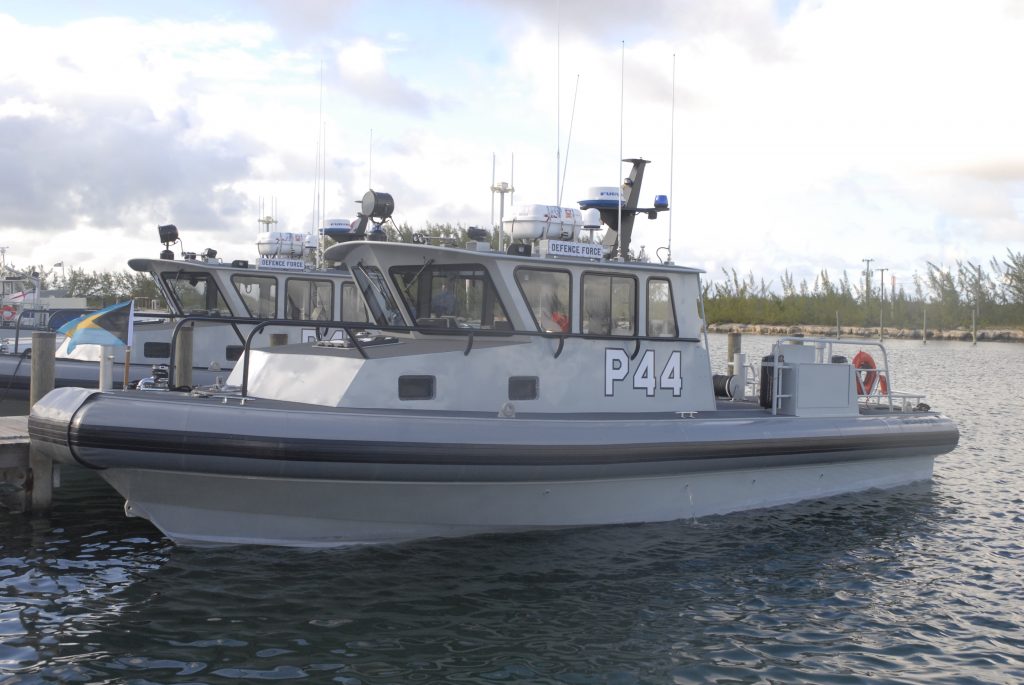
We must dedicate our fight to building a new country to those whose lives will be lost and to those who helped to protect us and save our lives.
We will have to dramatically transform our country in areas such as health care infrastructure; resilience against climate change and environmental conservation; combatting chronic non-communicable diseases; ongoing reforms in education, social development and the delivery of social services and assistance; the ongoing rebuilding of Abaco, the Abaco Cays, Grand Bahama and Ragged Island; border
protection; public sector reform; new ideas for tourism, financial services and ongoing economic diversification; domestic manufacturing, food production, fisheries and aquaculture; building a new digital economy and world of work; the greater use of solar and other forms of renewable energy and other areas of national life.
COVID-19 left us with certain difficult choices.
But as a country and as a people we have the choice whether to go forward or to go back to old habits that do not serve us well.
And we have clear choices on how we can rebuild and restore our country.
Mr. Speaker:
We are at the foot of the cross.
We are at Calvary.
But during this, the holiest of weeks in the Christian calendar, we know as people of faith and people of hope that Good Friday will be followed by Easter Sunday.
This is our prayer.
This is our blessed hope.
This is our resolve.
May God console those who have lost loved ones, and those who are ill and their families and loved ones.
Grant thy protection and guidance O’ Lord to all those on the frontlines of this battle.
May God bless us all and grant us grace and discernment in this time of need.
And may He ever continue to bless our fair Commonwealth.
Thank you, Mr. Speaker.
Magnetic Media is a Telly Award winning multi-media company specializing in creating compelling and socially uplifting TV and Radio broadcast programming as a means for advertising and public relations exposure for its clients.

You may like
-
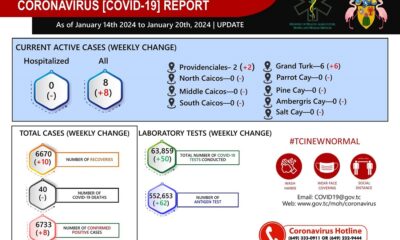

TCI Health Ministry says COVID cases up, information slow in coming
-
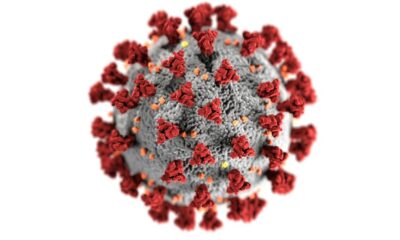

Trinidad and Tobago sees COVID-19 resurgence
-
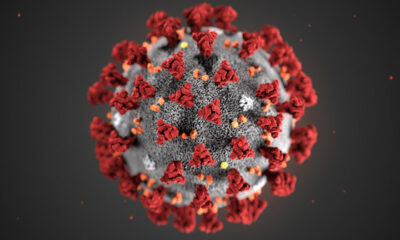

One dead in Grand Bahama in Covid-19 wave; TCI has seven new cases
-
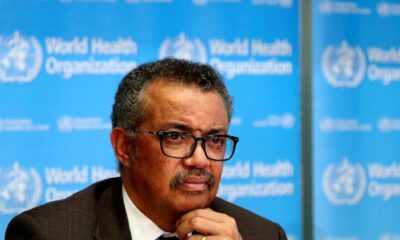

No More Weekly COVID Updates, says WHO
-


COVID + Kids, What to watch for
-
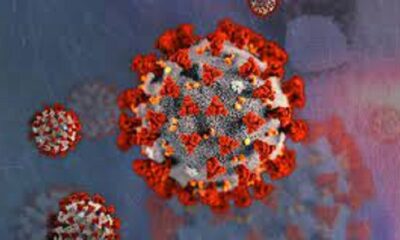

Barbados records increase in COVID deaths in July

NASSAU, The Bahamas – Participants of the Ministry of Social Services, Information and Broadcasting’s Camp Inclusion, including the camp’s student advocates, recently toured Nassau Cruise Port in a move designed to produce multiple benefits for the children.
Camp officials said the tour was part of the “moving away” from the old tradition of keeping children with disabilities locked away at home, and towards greater social inclusion for persons with disabilities – especially children.
Facilitated by the Community Affairs Division of the Ministry of Social Services, Information and Broadcasting at the Flamingo Gardens Family Life Centre, the camp is a collaborative effort between the Ministry, its Community Affairs and Disability Affairs Divisions, the Bahamas Coalition of Advocates for Disability Awareness and Service (BaCADAS), and the National Commission for Persons with Disabilities (NCPD). The majority of the Camp Instructors are persons with disabilities.
The Camp is in keeping with the Global Family Day 2024 theme of “Embracing Diversity, Strengthening Families,” and is an extension of the Ministry’s continued efforts to take the lead in ensuring access and inclusion for all — particularly the community of persons with disabilities — in every aspect of society.
Children with different levels and types of disabilities, along with student advocates, participated. Its focus was to ensure that participating youth learn about living with mobility and intellectual disabilities, advocacy, inclusion and accessibility.
Mr. Townsley Roberts, Deputy Executive Secretary of the Secretariat of the National Commission for Persons with Disabilities, said the visit is expected to have a number of expected outcomes.
the visit is expected to have a number of expected outcomes.
“It was very important to get the kids out and for them to see parts of the island that they rarely get a chance to experience,” Mr. Roberts said. “It was also an opportunity for them to feel a part of the Bahamian society because many times they are kept at home or just in the classroom (and) so this gives them a chance to spread their wings; an opportunity to dream. You never know, something they saw today can spark their imaginations and some may become artists, want to work in the tourism field or even just to try and experience a cruise. The ability to dream, to feel a part of society, to feel included, is important to the growth of all children, including persons with disabilities.”
Mr. Roberts applauded officials at Nassau Cruise Port for agreeing to the tour, which he said also allowed chaperones to inform the student advocates of some of the aspects that makes a facility accessible and inclusive.
“We are so happy that the Cruise Port allowed us the opportunity to come and tour the facility. As the name of the camp goes, what we are promoting is inclusion — total inclusion in all aspects of Bahamian society including the culture, and the open spaces. We want to make sure that all spaces are accessible and one of the things we know, because we had the opportunity to inspect the cruise port, is that the Port is accessible to persons with disabilities. So why not bring the children – including the student advocates — here as a means of helping them to understand and to witness first-hand what accessibility means and how it, or the lack of accessibility, affects the lives of persons with disabilities.”
Mr. Antoine Munroe, a Camp Instructor and employee of the Disability Affairs Division of the Ministry of Social Services, Information and Broadcasting, said access and inclusion ensures that every person is able to achieve the same outcomes whether in social, educational, or employment settings, and are the best methods of ensuring that persons with disabilities are given the same opportunities to participate in society. He applauded the inclusion of the student advocates in the camp.
“It is a passion of my own to see young people included and exposed to the life of persons with disabilities. Being able to tour the facility gave me an understanding of how I can use my cane to move about with a little assistance and I thought that was very, very smooth. I congratulate those persons who were able to cause this to happen, and also the persons in charge of the Nassau Cruise Port. I think this is a very good step in the right direction,” Mr. Munroe added.
Release: BIS
(BIS Photos/Patrice Johnson)
Bahamas News
National Commission for Persons with Disabilities gauges ‘accessibility’ at ZNS, BIS as part of ongoing inspection schedule
Published
19 hours agoon
July 26, 2024
NASSAU, The Bahamas – Inspectors attached to the Inspectorate Division of the Secretariat of the National Commission for Persons with Disabilities (NCPD) conducted assessments of the facilities at the Broadcasting Corporation of The Bahamas, and Bahamas Information Services, Tuesday (July 23) as part of their ongoing efforts to ensure that all public facilities, and those private facilities that provide services to members of the public, are accessible for all.
Both entities fall under the remit of the Ministry of Social Services, Information and Broadcasting as does the Secretariat.
The team was headed by Mr. Townsley Roberts, Deputy Executive Secretary, Secretariat of the National Commission for Persons with Disabilities, and included Mr. G. Michael Ellis, Senior Inspector; Mr. Wesley Paul, Inspector; and Mr. Thorne Clarke, Inspector.
Deputy Executive Secretary Roberts said the inspections were two-fold.
“Today we are inspecting ZNS and BIS which are both a part of the Ministry of Social Services, Information and Broadcasting to ensure that they are accessible because it is our belief that we cannot ask the public to do the things required by law without first ensuring that our entities are also in compliance,” Mr. Roberts said.
“People need to understand that accessibility to persons with disabilities is just as important as it is to persons without a disability. We want to be able to go about your day-to-day business without any obstacles in our way.
“What makes us disabled is the built environment, the barriers in front of us. If you remove those barriers, then we can do many of the same things persons without disabilities can do, and sometimes better. So this is what we are about. We are trying to make The Bahamas a place for all persons (and) where it will be comfortable for persons with disabilities to be able to manoeuvre through buildings and other spaces with the same ease and comfort expected by everyone else.”
The inspection team conducted assessments of wheelchair ramps, bathrooms, office spaces, and parking and reception areas, and measured doorway and hallway widths, in addition to other spaces to ensure that the requirements as set out in the Persons with Disabilities (Equal Opportunities) Act, 2014, are met.
Mr. Ellis, who spent 34 years as a member of the Royal Bahamas Police Force before retiring as a Senior Police Officer and who brings that same knowledge of the law to his new role, said the inspections help to ensure that the community of persons with disabilities enjoy the same rights to accessibility as any other citizen.
“Persons with disabilities, including those in wheelchairs, persons with walkers, crutches and those who use other assistive devices such as canes, should be able to move around just like everyone else,” Mr. Ellis said.
“We were looking to make sure that there were accessible bathrooms for both males and females, to ensure that there are proper ramps and that the ramps are the proper sizes, to ensure that all of the offices are accessible and all of the other areas are accessible for persons with disabilities.
“The Act says whatever we, as able bodied persons can do, a person with a disability should be permitted or allowed to do the same without any hindrance. Our job is to ensure that these facilities are in compliance with the Act.”
Once inspections are completed, Adjustment Orders are sent to those facilities/businesses found not to be in compliance with the Act, advising them of any faults, and providing a time-frame for compliance.
(BIS Photos/Anthon Thompson)
Release: Bahamas Information Services
PHOTO CAPTIONS
Header: – ZNS/BCB
Left to right:
1: G. Michael Ellis – Sr. Inspector (NCPD)
2: Thorne Clarke – Inspector (NCPD)
3: Townsley Roberts – Deputy Executive Secretary (NCPD)
4: Wesley Paul – Inspector (NCPD)
5: Carlton Smith – Chief Security Officer (BCB)
Insert: – BIS
Left to right:
1: Elcott Coleby – Director General (BIS)
2: Wesley Paul – Inspector (NCPD)
3: Townsley Roberts – Deputy Executive Secretary (NCPD)
4: Carlton Smith – Chief Security Officer (BCB)
5: Thorne Clarke – Inspector (NCPD)
6: G. Michael Ellis – Sr. Inspector (NCPD)
Bahamas News
Prime Minister Davis: Cannabis Reform Compendium 2024 ‘a long time coming’
Published
7 days agoon
July 19, 2024
NASSAU, The Bahamas – Prime Minister and Minister of Finance the Hon. Philip Davis said on July 15, 2024, that he spoke in support of the compendium of Bills to legalise the use of cannabis for medical and religious purposes, to decriminalise the possession of small amounts of cannabis, and to “regulate the cultivation, sale and use of cannabis and related products within our borders and to promote the health and safety of our people.”
“This has been a long time coming,” Prime Minister Davis said, during his Contribution to the Cannabis Reform Compendium 2024 Debate in the House of Assembly.
“For years, Bahamians have called for an administration to have the courage to step up and take this issue on in a decisive and responsible manner,” he added. “While many other countries, including nations within our region like Jamaica, Trinidad & Tobago, Antigua & Barbuda and Barbados, have taken steps toward decriminalisation and legalisation for medical use, Bahamians were left wondering when it would be our turn to modernise our local approach to cannabis.”
Prime Minister Davis noted that the national dialogue had been ongoing for the better part of a decade.
“Many people thought change was imminent when the Marijuana Commission began its work in October 2018, under the previous administration,” he said. “These efforts culminated in a preliminary report delivered in January 2020 and a final report delivered in August 2021.”
He added: “The Commission cited a wide range of in-person discussions and public opinion research, noting that there appeared to be widespread public support for the legalisation of cannabis for medical purposes. There was also healthy support for decriminalisation and an appetite for a strong regulatory and enforcement framework to ensure high standards for this new industry.”
Prime Minister Davis pointed out that the recommendations of the Commission called for legalisation for medical use, decriminalisation for small amounts, legalisation for use as a religious sacrament for members of the Rastafarian community, as well as strict regulations to ensure the quality and safety of the local cannabis product.
“In the PLP’s Blueprint for Change, we committed to developing a comprehensive regulatory framework for growing, harvesting, and exporting cannabis to create opportunities for Bahamians,” he said.
“The approach we developed to legislating and regulating Cannabis was informed by widespread research and consultation,” Prime Minister Davis added. “It was partially based on the CARICOM Regional Commission on Marijuana’s research and findings, as well as the approaches of other jurisdictions like Jamaica, Barbados, and Canada, where Cannabis has been legalised and regulated.”
He said that his Government’s goal was to ensure that it developed the most fair, balanced, and effective legislative and regulatory mechanisms, which would allow The Bahamas to reap economic and health benefits while promoting law and order and keeping its people safe through the introduction of stringent standards.
Prime Minister Davis added: “Once we felt that we had an adequate draft, we released the draft bills publicly, and we held a number of stakeholder consultation sessions, led by the Attorney General’s Office, in which we sat down with major stakeholder groups like healthcare providers, leaders of our church community, advocates for legalisation, leaders of the Rastafarian community – some of whom I see here today, as well as those who had concerns about the impact of legalisation and decriminalisation on the proliferation of usage. These varied opinions were taken into account and adjustments were made to achieve the most practical and effective approach that would work best for the Bahamian people.”
He pointed out that his Government also paid close attention to ongoing research on the issue – the most recent of which, he noted, was a survey conducted nationally by Public Domain in 2023, which indicated that 61% of the population supported the legalisation of cannabis for medical usage.
“It was clear that the times had changed, and it was time for our laws to change as well,” Prime Minister Davis stated.
He continued: “We’ve been hard at work since 2021. We knew this was not a process we could rush. There was a recognised need for carefulness and due diligence, but there was also a need to ensure that this new legislative and regulatory regime could be introduced and implemented within this term. We could not simply kick the can down the road for our next term the way other administrations did. No, we could not delay these changes – not when so many people had waited for years for real action to be taken.
“Today, the wait is over.”
Prime Minister Davis noted that his Government was taking action on behalf of all of the people who simply wanted the ability to legally consume medical cannabis to help them with their medical conditions.
“There are people with children suffering from epilepsy who have been praying for this moment,” he said. “There are people with glaucoma who want the opportunity to potentially alleviate their condition with a cost-effective and natural treatment.”
Prime Minister Davis added that there were people living with auto-immune conditions, chronic pain, anxiety, depression, and other ailments who were “waiting not-so-patiently for this day.”
“We are taking action for the many men and women living with criminal records for carrying small amounts of cannabis, and the many others who will be spared criminal records as a result of decriminalization,” he said.
others who will be spared criminal records as a result of decriminalization,” he said.
Prime Minister Davis stated that, as a society, his Government realised that the old approach taken against Cannabis in the War on Drugs in the 1980s and 90s did not necessarily reflect the current reality.
“Too many livelihoods have been lost because of a joint,” he said. “Too many lives have been handicapped and potentials lost.”
He added that when he was saying that, it was not his intent to excuse those who choose to break the law.
“After all, the law is the law; it must be respected and upheld,” Prime Minister Davis stated. “But we also recognise that the law is not static, it is dynamic. And the interpretation of the law and how it serves the greater good of society can change over time. I am confident that many lives will be changed for the better as a result of the criminal records that will be expunged.”
“Through these reforms, we are upholding the rule of law, making it clear that if you are seeking to supply others with cannabis illegally or engage in other unlicenced and illegal activities, you will be held accountable,” he added. “Everyone is welcome to participate within the legal and regulatory framework and only within that framework.
“Of course, as a part of this reform process, we are also taking action to recognise the rights and freedoms of Rastafarians to use Cannabis as a sacrament because it should not be against the law for our brothers and sisters of the Rastafarian faith to practice their religion.”
PHOTO CAPTION
Prime Minister and Minister of Finance the Hon. Philip Davis speaks, on July 15, 2024, during his Contribution to the Cannabis Reform Compendium 2024 Debate in the House of Assembly. (BIS Photos/Ulric Woodside)
Release: BIS
TRENDING
-

 Caribbean News7 days ago
Caribbean News7 days agoCayman Relief Mission to Hurricane hit CARICOM nations
-

 Caribbean News7 days ago
Caribbean News7 days agoCARICOM raising profile and priority of its Migration Policy; curbing challenges ‘a tall order’
-

 Caribbean News1 week ago
Caribbean News1 week agoHurricane Help; Money donated to Jamaica, Barbados, St Vincent & the Grenadines, St Lucia and Grenada
-

 Caribbean News7 days ago
Caribbean News7 days agoJamaica’s Hurricane Recovery Efforts Bolstered by Donation from Cayman Islands
-

 Bahamas News7 days ago
Bahamas News7 days agoPrime Minister Davis: Cannabis Reform Compendium 2024 ‘a long time coming’
-

 News7 days ago
News7 days agoWhat the new UK Prime Minister had to say about the Rwanda Deportation Plan at his first press conference
-

 Bahamas News1 week ago
Bahamas News1 week agoBahamas Celebrates 51st Independence – ‘United In Love & Service’
-

 News7 days ago
News7 days agoTurks & Caicos’ E.J Saunders part of Election Observer team in UK on July 4




